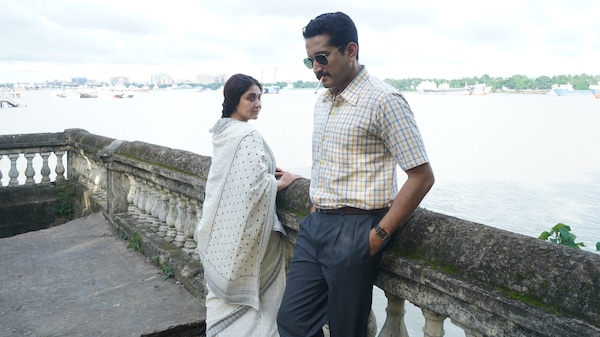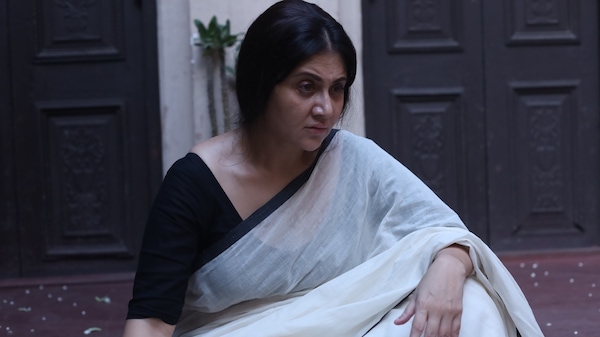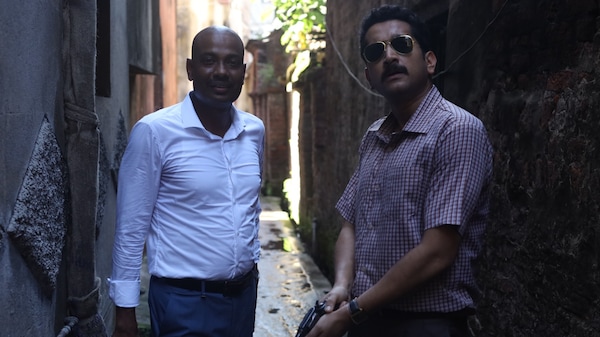Shibpur review: Swastika Mukherjee and Parambrata Chatterjee present a gripping gangster drama
Shibpur is a hardcore gangster drama that is deeply Bengali in nature. Sadly, the novelty of the film begins and ends there.

Last Updated: 03.11 PM, Jul 03, 2023
Story: Mandira’s (Swastika Mukherjee) husband, Aniruddha – an honest government officer – is murdered right in front of her after he refuses to budge under the pressure of a local gangster Nepal Bhattacharya (Rajatava Dutta) in Shibpur. After being let down by the police, administration, and judiciary, she seeks help from opposition ganglord Tapan Barik (Kharaj Mukhopadhyay) and eventually emerges as a gangster in Shibpur. Meanwhile, the chief minister (Sujan Mukhopadhyay) sends able IPS officer Sultan Ahmed to the violence-ridden Shibpur to stop the bloodshed and bring peace.
Review: Shibpur is a unique Bengali film for its choice of subject and genre. We have seen gangster films from all over the world. From Satya to Company, Gangs of Wasseypur and Mirzapur – our very own Bollywood has gifted us outstanding gangster films over the years. Ram Gopal Varma and Anurag Kashyap are known to have specialized in this genre. However, not many such films are made in Bengal. Shibpur is a hardcore gangster drama that is deeply Bengali in nature. Sadly, the novelty of the film begins and ends there.
Overwhelmingly competent acting, paltry narrative, and smartly presented gore – that is Shibpur in a nutshell. The film is dotted with a bevy of powerful actors, and it is a treat to watch them on screen. Swastika Mukherjee and Parambrata Chatterjee own the film with their indomitable performances. This is a film that revolves around Mandira. Swastika makes every bit of the character real. From the grief of a widow to a ruthless killer – she dominates the screen like a lioness.

On the other hand, Parambrata is indomitable on the screen, both as a younger and elderly Sultan Ahmed. He is sharp, smart, and agile on the screen. Throughout, he delivers his dialogue in a diction that fits perfectly well with the character. It is a treat to watch him on a big Bengali screen.
Besides these two, one can’t take their eyes off Kharaj Mukhopadhyay. The crude cruelty of Tapan Barik is disturbing, and Kharaj delivers a stupendous performance as this deadly fishmonger-cum-gang leader. Rajatava Dutta’s character – Nepal Bhattacharya – is as ruthless as Tapan’s. However, with a crisp dhoti and kurta and landlord legacy, he covers his slime under a civilised cover. He is brilliant as much.

One who surprises us all is Mamata Shankar as Jele Bedini. She is barely there on the screen for no more than five minutes altogether and startles us all with a character that we have never seen before. Besides, she appears eerily real in the film. Two other characters – Kana, the goon, and a corrupt local politician – are mindblowing.
Shibpur is raw, violent, and not for the faint-hearted. The film uninhibitedly explores the path of gore and violence – staples of gangster films. The film is beautifully shot and sleekly edited. The locations seem real, and the eerie background score helps the narration. Two songs – Tara Jwole and Jotobar Alo – are nicely used in the film. The other songs are also soothing in the mayhem of bloodshed. It is based on real-life incidents, and hence, the conflicts, language, and characters are not outlandish.
However, the film falters without soul due to a very feeble storyline and partial writing. On the screen, we see two-three gangs incessantly killing their opponents. What it lacks in the course is a narrative. Wagon breaking and supplying iron to local factories is the reason for their discord. But there is little care about explaining what leads one killing to the other. The elderly and retired Sultan Ahmed narrates the story to a young reporter (Susmita Chatterjee) at the current time. His voiceover to join the dots could have been helpful for the narration. This is where it lacks excellence. Meanwhile, a delayed resolution with a predictable ending makes the film 15 minutes too long.
Verdict: Shibpur is a bit of an exception in the current scheme of Bengali films. It has successfully set aside all the archetypal Bengali tropes and tries to reach out to broader viewers. It falters, but its success lies in effort and bravery. It is surely a must-watch.
WHERE
TO WATCH
Subscribe to our newsletter for top content, delivered fast.

